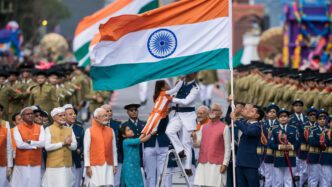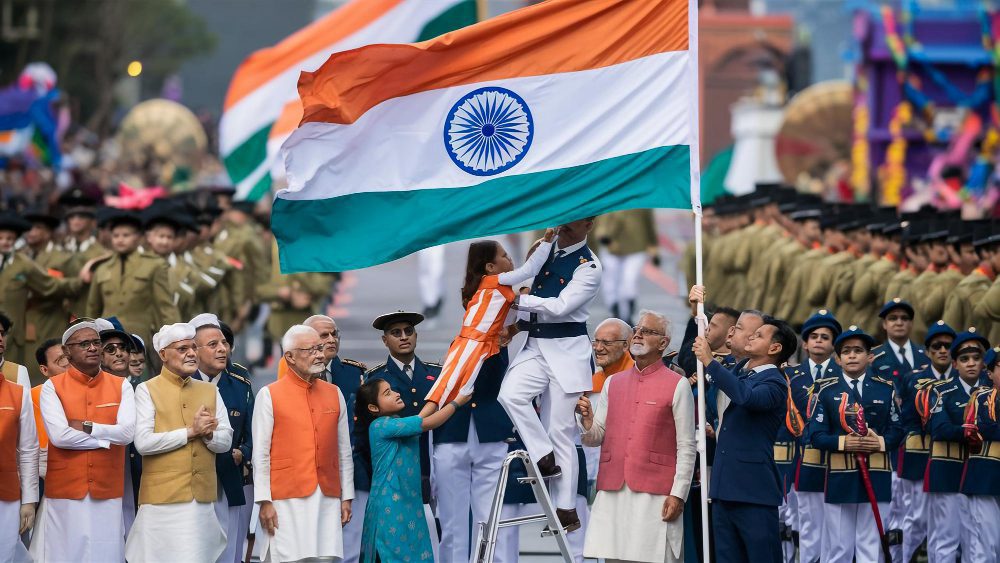Executive Summary
The Story So Far
Why This Matters
Who Thinks What?
The European Union and India are poised to deepen their strategic partnership, with defence and security cooperation emerging as a crucial catalyst for a proposed €150-billion free trade agreement (FTA). A new EU-India strategy document, presented by the EU Commission, highlights military industrial interests as a potential backbone for the deal, aiming to overcome existing trade obstacles and foster a stronger economic relationship between Brussels and New Delhi.
Trade Deal Dynamics
Sunil Prasad, Secretary General of the EU-India Chamber of Commerce, has expressed certainty that the FTA will be signed between Delhi and Brussels before December. Despite remaining hurdles in sectors like automotive components, agriculture, wine, and spirits, both sides appear willing to make concessions.
This readiness is reportedly driven by bilateral security policy and defence industrial interests. Prasad emphasizes that this cooperation will “pave way for the stronger trade and economic relationship.”
Geopolitical Drivers for Enhanced Cooperation
The war in Ukraine, escalating military presence in the Indo-Pacific, and recent tensions with Pakistan have elevated security and defence to a central position in the EU-India relationship. The 27 EU Member States are reportedly keen to engage in the defence industrial sector, primarily by offering EU technology.
India, aiming to become a manufacturing hub for weapons, seeks support from the European Union, acknowledging it “cannot do it alone,” according to Prasad. This mutual interest forms a strong basis for closer collaboration.
EU’s Direct Engagement in New Delhi
In a significant diplomatic move, the Political and Security Committee (PSC) of the EU, comprising ambassadors from all 27 Member States, visited New Delhi from September 10-14. This marked the first-ever visit by the PSC since its inception.
The delegation met with senior Indian institutional, political, military, and economic figures. PSC Chair Delphine Pronk stated that insights gathered from the visit would inform top EU political leaders, facilitating enhanced cooperation.
India’s Strategic Autonomy and Defence Modernization
India’s defence budget exceeds €70 billion for 2025–2026, with ambitious plans to modernize its navy and air force. Prime Minister Narendra Modi’s government actively seeks to diversify its military technology base, as evidenced by recent deals with Germany for submarine manufacturing and with France for Rafale fighter jets.
This strategic approach reflects India’s long-standing doctrine of not “laying all its eggs in one basket,” a point highlighted by Hosuk Lee-Makiyama, director of the European Centre for International Political Economy (ECIPE). India’s foreign policy demonstrates a complex balancing act, engaging with various global powers.
Despite trade and political tensions, India recently hosted US trade representatives to re-establish relations. This visit followed an executive order signed by President Trump in early August, threatening increased tariffs over India’s continued purchase of Russian oil.
Shortly after, Prime Minister Modi participated in the Shanghai Cooperation Organisation (SCO) summit, engaging with Russian President Vladimir Putin and Chinese leader Xi Jinping. Indian military personnel are also participating in Russian-led Zapad exercises in Belarus, which Lee-Makiyama suggests could be linked to observing the functioning of their Russian-made weapons.
President Putin is also expected to visit India before December to sign an agreement for the production of S-400 or S-500 air defence missiles, further underscoring India’s diversified defence strategy.
Challenges in Bilateral Security Cooperation
A persistent point of contention in EU-India security cooperation relates to the issue of Pakistan. India advocates for the EU to suspend the General Scheme of Preferences Plus (GSP+) with Islamabad, viewing it as an unjustified privilege.
This trade scheme grants Pakistan preferential access to the EU market in sectors like textiles, conditional on adherence to human rights and good governance principles.
Outlook for Partnership
The evolving geopolitical landscape underscores the mutual interest of the EU and India in forging a robust partnership, with defence and security increasingly central to their broader economic ambitions. While trade negotiations face traditional hurdles and India navigates a multi-aligned foreign policy, the strategic imperative for cooperation appears to be driving both sides towards a deeper, more integrated relationship.








